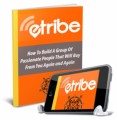
 License Type: Personal Use
License Type: Personal Use  File Size: 808 KB
File Size: 808 KB File Type: ZIP
File Type: ZIP
 SKU: 30842
SKU: 30842  Shipping: Online Download
Shipping: Online Download
Ebook Sample Content Preview:
As you're assembling your keyword list, it's a good idea to keep them in a spreadsheet or other software that allows for easy shuffling and sorting. It's worth mentioning here that there are paid keyword research tools that will do this part for you, sorting your keywords according to number of searches, buying words versus information words, and relative competition. Google "keyword tools" or visit forums dedicated to search engine optimization to find the best available tools.
If you use a free tool, you'll need to manually assemble your list. The information you want to include with your list is the keyword itself, the number of searches performed, the relative competition (use a scale of 1 to 10, or whatever makes sense to you), and the intent of the searcher for each phrase (buy versus information).
Next, go through your list and see if you can discern any patterns. You'll probably spot one or two primary words that will define your entire business. These will be high level, one or two word combinations, like "weight loss" or "dog training." These keywords will be the number one keyword for your entire site.
You'll probably also find several secondary phrases. These will be longer, and more specific than the primary phrase. Look for phrases like "dog crate training" and "exercises for weight loss." These keywords will represent the categories on your site.
For example, if your primary keyword is "plus size clothing" then your categories might include "plus size blouses" and "plus size lingerie."
Finally, you'll begin to see the lowest level of keywords – the post or article level phrases. Sticking with our plus size example, you might see phrases like "plus size baby-doll gowns" or "plus size blue silk button-down blouse." These low-level phrases are the ones you will actually build your content around, whether your content is blog posts, videos, or physical products.
Remember, these low-level keywords will have far fewer searches than the high level phrases, but the conversion rate, or number of buyers versus browsers, improves as your keywords become more specific.
A good example of this is actual product number keywords, like "Olympus E30 12.3MP Digital SLR," which would tend to convert extremely well. People who are conducting this kind of focused search are very close to a buying decision, so even though there aren't many searches, the ones who are searching are looking to buy.







